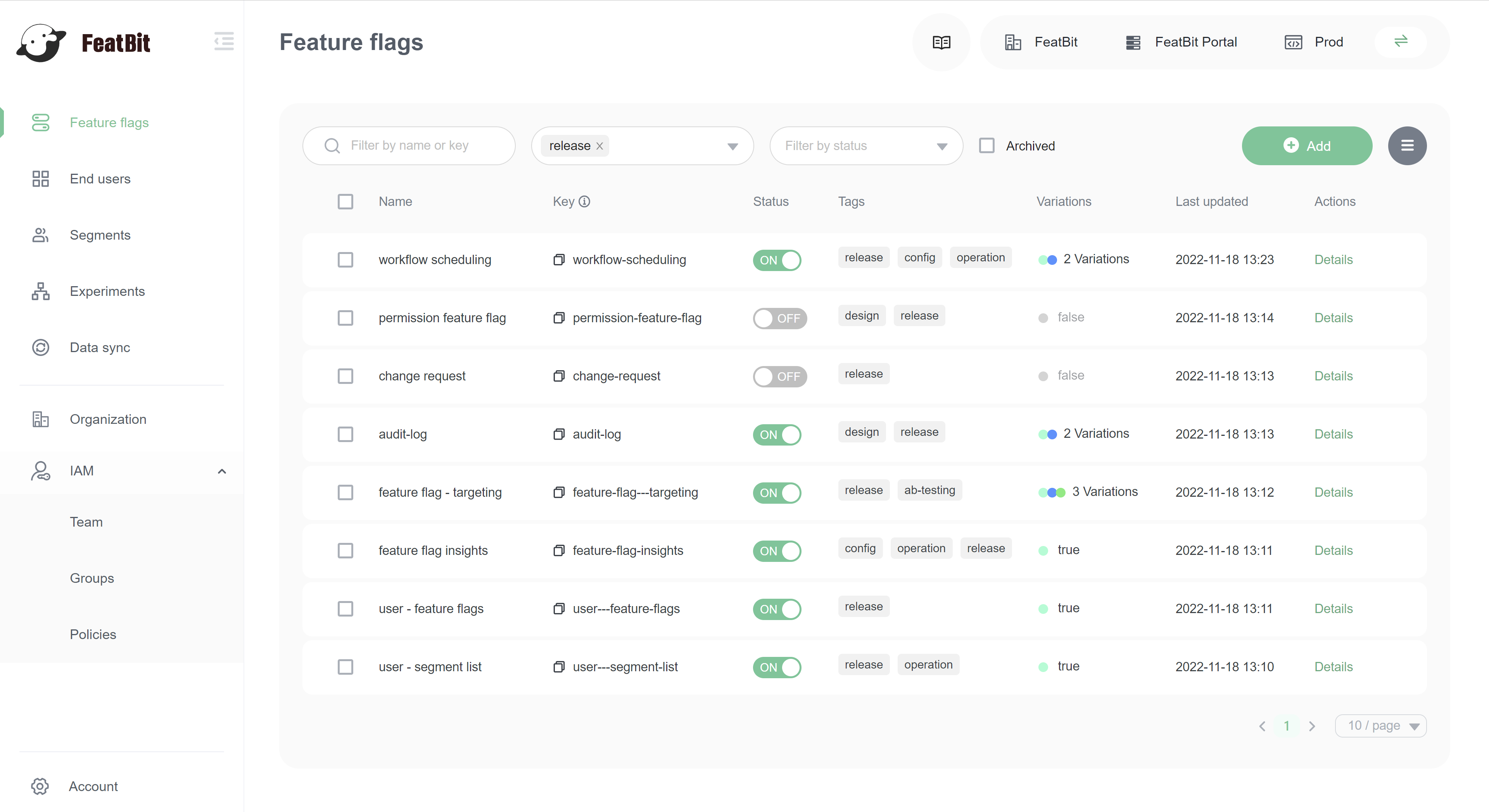Innovate
Your Software
Faster without Risk
Innovate Your Software Faster without Risk
Mastering Test in Production with Feature Flags for Agile and Efficient Coding

As software development has shifted towards more agile and continuous delivery practices, the use of feature flags has become increasingly important. Feature flags are a powerful tool that allows developers to release new features and experiments to a subset of users in a controlled and scalable way. This technique, commonly known as "test in production", enables teams to quickly iterate and improve their products based on real-world feedback.
In this article, we'll explore the benefits of using feature flags for test in production, and how they can help you deliver better software faster. We'll also introduce FeatBit, an open-source feature flagging service that provides a simple yet powerful way to manage feature flags and experiments.
Benefits of Feature Flags for Test in Production
Everything we put into production carries some danger of negative effects for our users, but planning for that and mitigating it makes it much safer than believing everything will work perfectly.
A feature flag, or feature toggle, is a software development process used to enable or disable functionality without deploying code. You can wrap a feature in a flag to deploy them to production without making them visible to all users. Once the flag is in production you can give test engineers or software engineers access to run tests or experiments. Feature flags are a critical element to safely testing in production.
There are several benefits to using feature flags for test in production:
-
Reduced Risk: By releasing features to a subset of users, you can minimize the risk of introducing bugs or other issues to your entire user base.
-
Faster Feedback: Test in production allows you to get feedback from real users, which can help you make better decisions and prioritize future development efforts.
-
Improved Collaboration: With feature flags, you can involve multiple teams in the testing and experimentation process, fostering a more collaborative and efficient development environment.
-
Easy to reverse: Feature flags enable you to turn features on or off without the need for a full redeploy, giving you more control and flexibility over your release process.
-
Progressive Delivery: You can deploy code changes on a daily basis and alter design and development decisions early on in the process.
Test in production at scale with FeatBit

FeatBit is an open-source feature flagging service that provides a simple and easy-to-use interface for managing feature flags and experiments. It is designed to work with a wide range of programming languages and platforms, including web, mobile, and desktop applications.
Some of the key features of FeatBit include:
-
Simple Integration: FeatBit can be easily integrated into your existing development workflow, with support for popular development tools like GitHub, GitLab, and Bitbucket.
-
Powerful Experimentation: FeatBit allows you to run experiments on any feature or metric, giving you the ability to quickly validate hypotheses and make data-driven decisions.
-
Granular Control: With FeatBit, you can control who sees which features, giving you the ability to gradually roll out new features and experiments to different user segments.
-
Open Source: FeatBit is fully open source, which means you can customize and extend it to meet your specific needs.
For more details about using FeatBit to do test in production, please read How to test software (and features) in a production environment (TIP).
Conclusion
Test in production is an essential technique for modern software development, and feature flags are a critical tool for enabling it. FeatBit provides a simple yet powerful way to manage feature flags and experiments, giving you the flexibility and control you need to deliver better software faster. Whether you're just getting started with test in production, or looking to take your experimentation to the next level, FeatBit is a tool you should definitely consider.